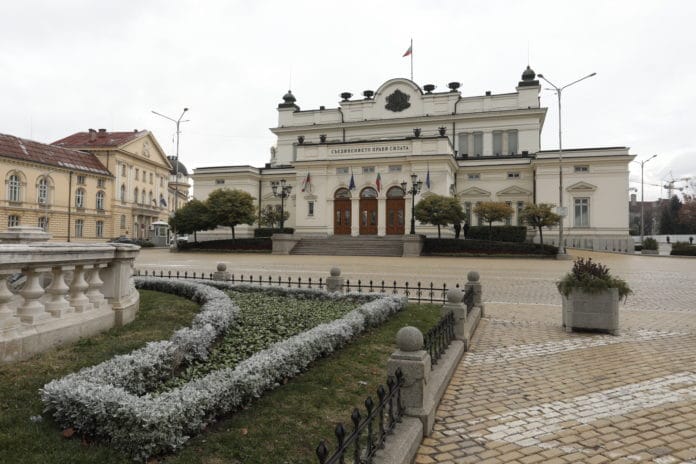
On April 4 this year, the regular parliamentary elections in our country were held. At them exactly 50.61% of Bulgarians expressed their preferences among 30 parties and coalitions.
In the early vote on July 11, 42.19% of voters went to the polls to nominate their candidates for the National Assembly from a total of 23 parties and coalitions, plus independent candidates.
On April 4, voting took place on paper ballots (of which 86,527 were invalid) and only 9,397 machines were provided. In contrast, on July 11, 2,000 more devices were provided, and ballots were more of a backup and exception. This was backed up by changes in the Electoral Legislation, with the aim of ending the widespread practice of buying votes and avoiding violations as much as possible.
What do the data show after the end of the two rounds? Is there a noticeable difference in the attitude of the voters? Is it possible that the statistics figures bring clarity to issues that would be crucial for future governance?
Mass analysts cite the holiday season as the reason for low voter turnout. However, given the huge desire for change that the people witnessed during the protests last summer, it sounds absurd to be so, doesn’t it? Each responsible citizen has the opportunity to indicate another place from which to vote, in case he / she is not at his / her permanent address. The minimum deadline for this was 2 weeks before the elections. Then?
Wasn’t the reason for these 42.19% the total lack of political debate? Did we see communication between the candidates? Have we seen ideas clothed with facts and deadlines over time? Was the struggle for power leading or the good of the people?
Some political scientists assume that people are tired of elections and no longer want to. Don’t they care? And what do they care about? This hypothetical fatigue is a rather disturbing and tragicomic theory.
How is it possible for a person to leave his future in the hands of unprincipled ness, corruption and someone’s personal interests, because he simply does not care? How do we expect someone to solve problems shamelessly neglected from the back seat of the SUV if we are too lazy to take our step towards change?
The results of July 11 are eloquent – 6 parties won seats in the National Assembly. These are „There is such a people“, GERB-UDF, BSP, „Democratic Bulgaria“, MRF and „Stand up! Get out! ” Arranged in percentages in exactly the same way.
The first position is for ITN, which gathered 657,824 voters, or 24.08%. Unlike now, in April they registered with 565,014 voters, or 17.66%.
The majority of people, especially those abroad, demanded that „there is such a people“ to head the country. Is the victory a result of the popularity and love of the people for the showman image of Slavi Trifonov? Or do Bulgarian citizens see in his face another leader to lead the „herd“? The one we feel closest to, because he is most familiar to us, that is, „our man.“ The last one elected was the former prime minister, who did not turn out to be as much as we expected.
GERB-UDF remained in second place with 642,165 people who voted for them, which makes 23.51%. Two months earlier, they were first in the race with 837,707 voters or 26.18% in total. The difference is between 200,000 votes. Serious change in just 2 months.
According to leading experts, it is due to several factors – machine voting, which cannot be manipulated, police actions to stop the practice of buying votes and the scandals related to GERB, which the caretaker government brought to light.
Photo related to Prime Minister Boyko Borissov It is difficult to analyze the party that, after 12 years of governing Bulgaria, chose the motif „Order in Chaos“ as its slogan. Such a public announcement of the failed cabinet speaks enough about the presence of GERB in the political arena in our country. The leader of Boyko Borissov himself was involved in many serious atrocities. At first glance, there was no shortage of evidence for them. And on the second? A second look was missing. The cases were closed, and Chief Prosecutor Ivan Geshev proved to be a sufficiently effective bat against the truth and the law.
The BSP managed to win 365,695 voters or 13.39%. In April, their situation was significantly better. At that time, 480,146 of our compatriots voted for the Socialists, which makes 15.01%.
The result of the Reds in April and now is approximately equal. For one reason or another, trust in the party is going downhill. It is quite possible that Cornelia Ninova herself, against whom the deputies from the BSP parliamentary group organized protests, is not aware of what to do in order not to repeat the mistakes already made.
There were riots of discontent among the BSP in the regional cities of Veliko Tarnovo, Dobrich, Plovdiv and Stara Zagora. Supporters of the left were not happy with the arrangement of the lists, and the mood rekindled quarrels, which Ninova skillfully tried to „sweep under the rug”.
The fourth place in the early elections was assigned to „Democratic Bulgaria“ / DB / with 345,329 supporters, i.e. 12.64%. The numbers in the statistics are definitely in favor of the Democrats, who remained in 5th place in April with 302,280 voters (9.45%).
The DB managed to gain the trust of a significantly larger number of voters compared to the April vote. Corruption is a sensitive issue in Bulgaria. Using it as a tool, the co-chair of the union Hristo Ivanov attracted many and especially young people who voted for him. They were inspired by the discussed options for reform of the judiciary and the search for justice on many other serious issues regarding the restoration of statehood in our country.
The convincing difference in favor of the DB left the MRF in the unenviable 4th place with a result of 292,439 voters (10.71%). It would not be a lie to say that the party of Mustafa Karadayi and Ahmed Dogan has suffered a serious defeat, as it has not achieved such a low result since 1994. It is clear that the Saraite-born policy of „national traitors“ is heading for its natural end.
In April, the MRF somehow reached its then 336,306 people (10.51%). The party’s name has been implicated in more than one investigation into a bought vote, as studies in Gurkovo have convincingly tipped the scales in the direction of corruption.
In the last two months, before the previous elections on April 4, 400 people were registered in Gurkovo, who applied to vote at the current address, and who were deregistered shortly after the elections. Two months before July 11, there were only 15 applicants.
In April 2021 the population of Gurkovo municipality swelled and two months later returned to its previous values. The votes for the MRF are also growing proportionally, which was voted by the mayor Marian Tsonev, who was brought in as a defendant for a controlled and bought vote on July 9 this year. In the July elections, these 427 voters did not return to Gurkovo, and the MRF’s results fell sharply.
In 6th place for the second time in a row is „Stand up! Mutri out! ”/ ISMV /. On July 11, they won 136,879 voters, a percentage equal to 5.01%. On April 4, their result was lower. The WISA then registered 150,940 voters or 4.72%. The outflow in April is very likely due to the statement of Nikolay Hadjigenov from ISMV. He then said he could possibly sacrifice himself for a ministerial post.
The active civil position of the chairman of the coalition „Stand up! Get out! ”Maya Manolova played a key role in their entry into the National Assembly and their overall success – both in this and the previous elections. Manolova’s work on a variety of causes of high public importance, as well as the specific goals underlying the ideology of their plan, left voters with a sense of trust and security.
The „smaller victories“ of the other parties, which competed in the elections in April and July, were also significant. You can see the movement in the list of results from the Central Election Commission (CEC).














